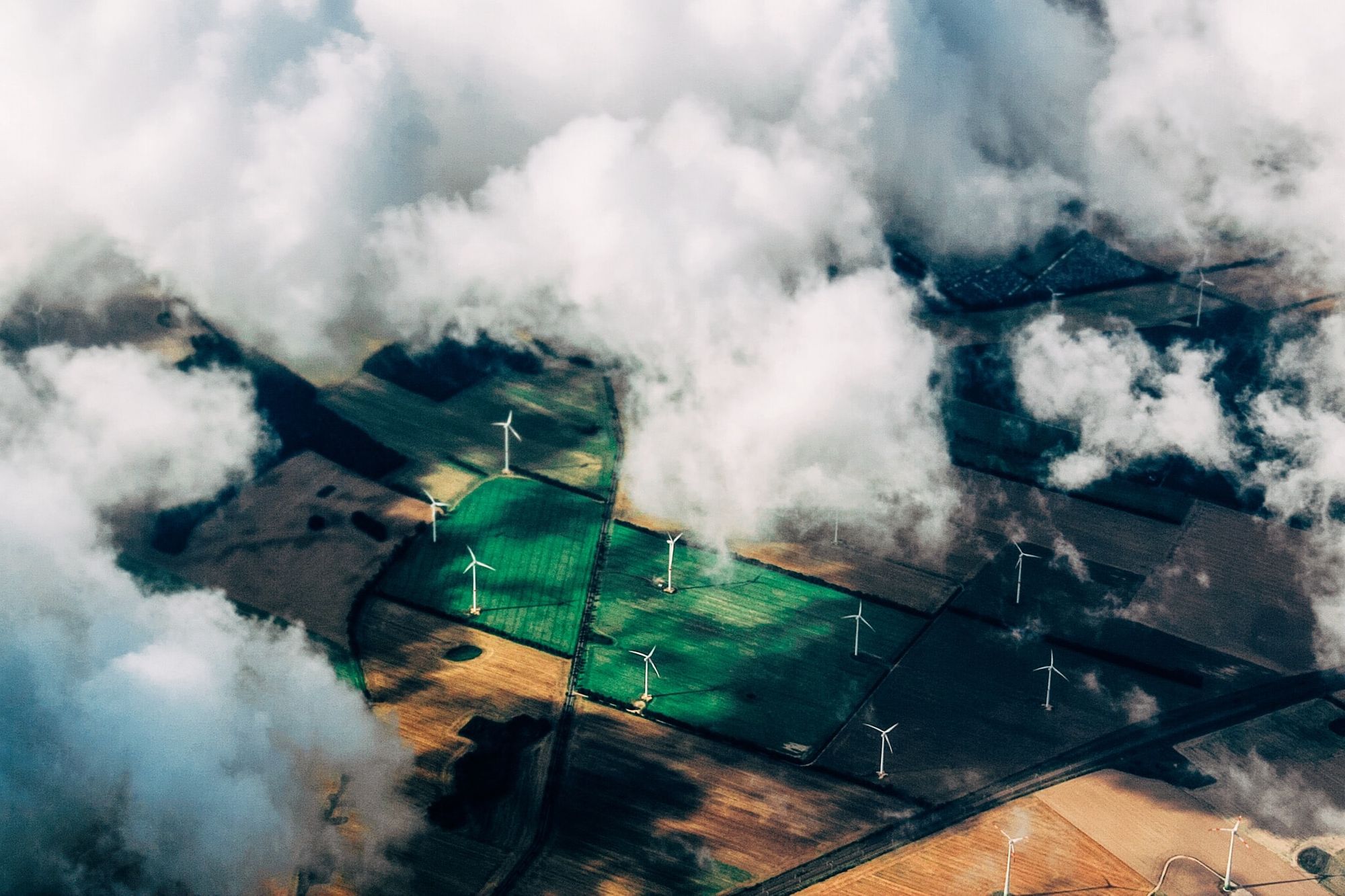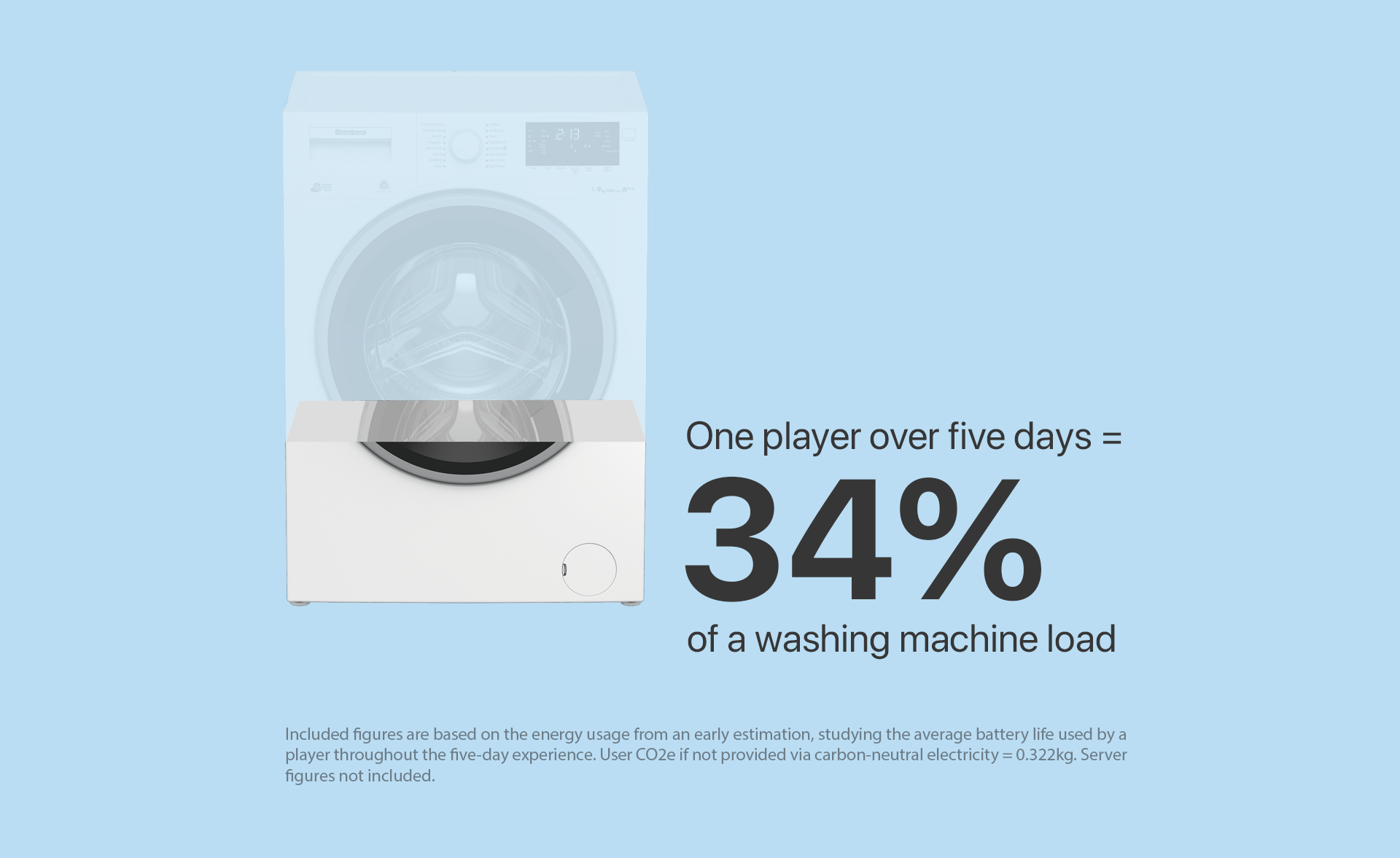We made our first carbon-neutral project 🎉
Big goal: accomplished. But how? Here’s a not-too-technical breakdown that might contain some useful stuff you can apply to your own digital adventures.

Earlier this month we launched our first public run of Smoking Gun – real-life players each downloaded our app and set about scrutinising evidence, following leads, solving puzzles, creating theories, and deciding whether to blow the whistle on what they found. (We’re doing a second public run at the end of the month, if you want to join!) Aside from the battery power used by players’ devices (and maybe a bit of googling to figure out some clues), the whole shebang had a net result of zero carbon emissions.
We achieved this with three main strategies:
1. Building our own stuff
Audiences play Smoking Gun through Siika, a text-chat app that we purpose-built for this project. From the user’s perspective, the app doesn’t do anything more than Signal, Whatsapp, Telegram, Line, Facebook Messenger and the rest can do – in fact it probably does less. So why build our own rather than use any of the dozen existing chat apps?
Firstly, we should add that the decision to build our own app wasn’t only driven by energy consumption. Often the precise functions we want within a game simply aren’t available through one existing app, so our hands are kinda forced. Also, Smoking Gun requires players to access what we've built over several days in a time-sensitive way, so we need to be quick to root out bugs that arise during play. Having built the blocks ourselves means we (sadly) know a lot of code lines almost by heart and can quickly fix issues on the spot.
But back to energy. Using our own bespoke app means that we’re not drawing on energy to have unnecessary functions humming away in the background, each anxiously waiting to do their bit. For example, if we were using WhatsApp we’d have the capability to use audio messages within the app, which Smoking Gun doesn’t need at all, but which would still suck energy just by being a latent potential tool within the system.
Similarly (without giving away too much of the plot), players might follow a trail of breadcrumbs from our reluctant whistleblower’s clues onto related websites. We built these from scratch because WordPress, Wix, SquareSpace and the rest have vast behind-the-scenes infrastructures to make sure they can facilitate all sorts of websites for all sorts of people at any given moment – and we only need a sliver of all that. We also housed our websites on a server running on wind power, so no carbon-emitting energy is used to deliver the page to players.
Building our own app and websites means we don’t have to call on energy for un-required parts. It also means we have way more control and visibility, which we’ll get to in a minute.

2. Building in modules
Modular building means that multiple projects can use the same module, maintained from a single code base. This is really useful because we’re learning about carbon emissions and energy efficiency as we go along; it hasn’t been baked into our projects from the moment we began. So I can learn a neat trick to reduce energy in part of a current project, and that update will also apply to any other projects using that module, making all our projects more energy efficient over time. This also massively reduces my time spent coding, saving my personal coffee-fuelled energy supply.
As an example: a couple of years ago we launched a show called The Justice Syndicate, which presents each player with an iPad full of evidence related to a fictional court case. The operating system we built for that now also houses tools for other projects, so any improvements made while working on a future project will automatically deploy to all in one fell swoop. (I detailed an example of making that operating system more carbon-efficient back in April.)

3. Measuring eeeeeeverything
In order for us to know we’re making a carbon-neutral project, we need to be able to measure every component.
Frustratingly, this wouldn’t be possible with most third-party tools. Tech companies love to shove their energy consumption data in a black box, chuck it in a dark corner, and hope no-one asks where it is. It’s really hard to find out (for example) how much energy it takes to watch three hours of unlikely animal friends compilations on YouTube, and even if you got hold of the raw data, it’s pretty tough to process it into something meaningful.
Our Siika app monitors how much energy is used for each part of the experience, and for each user. In early phases of the project, we tried out third-party tools – for example, we used an identity authentication platform called Auth0. This was useful for us in that we didn’t have to worry about handling players’ data directly, and didn’t have to build our own login function. However, asking Auth0 to pull in user data creates an action that we can’t measure; a dead-end for our energy-tracking efforts. Once we made energy tracking a priority within the project, the time and effort of building our own login system became “worth it”.
With everything else carbon-neutral, we can now take into account an average player's battery use throughout the five-day experience, estimating that...

And that’s about it. Yes, some of this stuff is easier for us to do with the privilege of being a very small, non-hierarchical organisation. But bigger, more powerful organisations and tech companies have privileges of their own, and it often feels like they’re not being directed towards energy efficiency. In 2018, OpenAI found that the amount of computational power used to train the largest AI models has doubled every 3.4 months since 2012. Joana Moll recently calculated that buying a book on Amazon requires 30 Watt-hours to load 12 heavy interfaces worth 8,724 A4 pages of printed code. And Big Tech is still in a big love-in with Big Oil.
Arwa Mahdawi recently wrote: "Digital technology has ushered in an age of inconspicuous consumption. It is easy to understand the environmental impact of buying 'stuff' or flying across the Atlantic. It is harder to wrap your head around how much energy it takes to fly data across the web." For big corporations, it's very useful to make their questionable systems mostly invisible to users; for everyone else, it's really not.
The next step is thinking about how to meaningfully discuss this with Smoking Gun's audiences. Throughout this process, we’ve been wary of talking about energy-per-player, because it can quickly sound like we’re building tools to carbon-shame people. Providing a carbon-neutral game isn’t about saying each person should only choose to play/watch/consume carbon-neutral things like ours. That just places the responsibility right back on the individual in that convenient sneaky move that corporations love to use.
But it does help to show that another way is possible, and gives us the tools, evidence, understanding, and imagination to demand better things of bigger organisations and the governments that could be holding them to account. Transparency and accessible information are key steps towards envisioning better systems. If we don’t know how things work then we don’t know how to change them.

